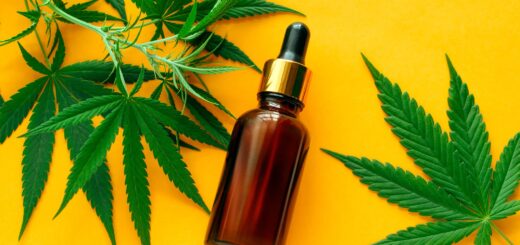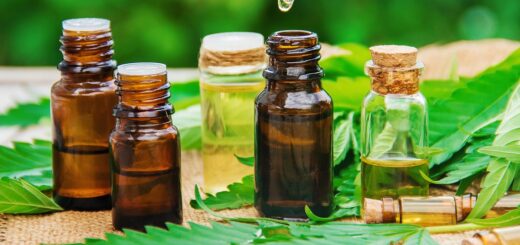Using CBD Oil for Wisdom Tooth Pain
The wisdom tooth usually breaks through the gums last of all the teeth. It’s the final one to come in, thus it’s the most painful for young people between the ages of 17 and 21. Molar tooth impaction is a common dental emergency that can result in severe discomfort, swelling, and the inability to sleep comfortably.
Here is some background on the use of cannabidiol (CBD) tinctures and oil drops for dental pain, including that associated with wisdom teeth.
Cannabidiol (CBD) Oil and Teeth?
Numerous papers have discussed the positive effects of CBD on oral health, anxiety, and pain throughout the body. Since cannabidiol (CBD) oils are excellent for pain throughout the body, they may also benefit dental health.
Based on the results of earlier research, CBD oil in Australia may be useful in facilitating the onset of comfort. Further study is required before CBD may be prescribed as a medication, despite the fact that it may have antioxidant, anti-inflammatory, and analgesic properties.
Chronic pain sufferers may get relief from their anxiety by using medical cannabis or CBD oil. And if you want to try medicinal cannabis, you should definitely schedule an appointment with a doctor first. Furthermore, Cannabis’s analgesic effects are not restricted to the treatment of toothache.

Is There Any Risk Associated with Taking CBD Oil for Toothache?
Although CBD oil may help relieve tooth pain, it is important to be aware of the potential negative side effects. Here are some negative effects based on tooth pain on CBD:
- Anxiety: – CBD can conceivably make you nervous or develop anxiety if it contains a high quantity of THC.
- Sublingual forms of CBD, such as sprays and tinctures, are absorbed via the mouth’s mucosal membrane, preventing the occurrence of dry mouth. CBD can then reach the salivary glands’ cannabinoid receptors, reducing saliva flow and generating dry mouth.
- Cough: – Terpenes create throat discomfort, which leads to coughing. Coughing is a common side effect of CBD vaping that may last until you become accustomed to it.
- Perhaps Induce Gum Issues: – Only one study report on the effects of CBD on gums has been made public thus far.
- High or inconsistent CBD dosage might cause dysphoria.
In addition, some people experience the following side effects when using CBD oil, symptoms may include: Weakness, Lethargy, Diarrhea, Lightheadedness, Weight or Appetite Changes.
Potential contributors to these unwanted effects include the CBD’s interaction with other medications, the CBD product’s unreliability, the CBD dose, and the presence of increased THC and less CBD. Therefore, to lessen discomfort, it is advisable to see an expert, such as a doctor.

How CBD helps with tooth ache.
The endocannabinoid system is one of the many systems CBD influences. Cannabinoids and their receptors are generally found in the endocannabinoid system (ECS), and the ECS’s ability to regulate pain, appetite, and mood is a direct result of this interaction.
When taken orally or given topically, the cannabinoid CBD influences these activities via interaction with cannabinoid receptors. So, by affecting the ECS, it might reduce pain.
Need a drug to help with the pain from my wisdom teeth.
What’s better, CBD oil or ibuprofen? Taking the medication as directed on the label may improve your condition. Inflammation of the gums is a common side effect of getting wisdom teeth, and this helps alleviate that. Pain medication like ibuprofen or other NSAIDs might help ease discomfort until a dental appointment can be made.
Why Do Dentists Suggest CBD Oil?
It has been suggested that CBD oil can help reduce inflammation and pain sensitivity while also reducing the damage caused by gum disease. Specifically, CBD regulates the immune system through interacting with CB2 receptors in the brain.
Do Cigarettes Cause Toothache?
Gum recession, which reveals more of the tooth root, is a common side effect of smoking. The danger of tooth decay and the development of hot/cold sensitivity may be exacerbated by the exposure of nerve endings that are usually shielded by the gum line. Teeth discoloration, bad breath, and a darkened tongue are all side effects of smoking.
Smokers have a weakened immune system, making them more susceptible to oral diseases and making it more difficult for them to recover after dental surgery. Reports shows that smokers have a higher risk of developing gum disease, often known as periodontitis.
Cavities, decay, and tooth loss are all caused by bacteria that flourish in the smoky environment. Mouth ulcers and sores are more common among smokers, and gum recession, in which the crown margins of the teeth become visible, is a known side effect of tobacco use. This might alter the appearance of their crowns and make it more challenging to maintain good oral hygiene.
Smoking is bad for your oral health for a number of reasons, including – Oral Cancer: the toxic chemicals in cigarettes, cigars, and smokeless tobacco induce mutations in healthy cells in the mouth and throat, increasing your risk of developing oral cancer, one of the most dangerous and difficult to treat cancers.

CBD Oil for Gum Disease: How to Use It?
Your dentist should provide you advice on how to treat your tooth pain if it is severe or related to a medical or dental condition. However, CBD may help alleviate discomfort associated with milder ailments like common toothaches.
When conventional pain relief measures, like flossing, fall short, using CBD may be a good option. The two most common ways of ingesting CBD to alleviate tooth pain are in the form of capsules/edibles and tinctures of CBD oil.
Steps:
The first is to put some CBD oil on your finger or a q-tip using an oil dropper (wash your hands beforehand). Then, using your finger or a cotton swab, gently apply the CBD oil to your gums, paying special attention to the area that is hurting.
As an alternative, you may incorporate CBD oil into your oral hygiene routine by adding some to your toothpaste.
Add 1-2 drops of CBD oil to your regular toothpaste and then clean your teeth. When you brush your teeth with oil, pay special attention to the areas surrounding your gums where the pain resides. You should wait around 20 minutes for the effects of a CBD oil tincture to kick in. If you don’t mind having to wait a bit longer for relief, CBD may be worth a try.
To alleviate your discomfort and maybe improve your oral health, start using CBD toothpaste and mouthwash. However, a dentist-prescribed mouth rinse is more effective in eliminating bacteria.
In general, the shelf life of medical CBD oils is between one and two years. Before you use CBD oil, you should always verify its freshness by checking the expiration date.
You can acquire CBD in oil, tincture, gummy, or pill form, depending on your preferences and finances.
To know more about where to buy CBD oil in Australia and other CBD oil benefits, you should book a consultation session with a professional from Chronic Therapy today.


